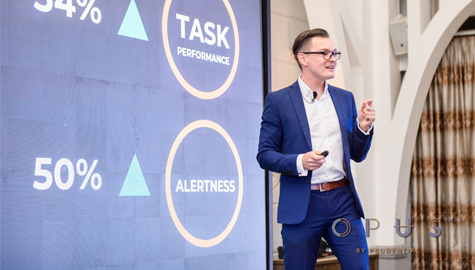
ESG Investing: The Future of Wealth Management for HNWIs
What is ESG, and what does it mean to engage in ESG investing?
Environmental, social, and governance (ESG) investing refers to investors supporting companies that conduct their business in a socially responsible manner, thereby promoting positive change and sustainable practices.1 There are three factors to consider in ESG investing:2
- Environmental criteria considers how a company safeguards the environment, including corporate policies addressing climate change, for example.
- Social criteria examine how it manages relationships with employees, suppliers, customers, and the communities where it operates.
- Governance criteria considers a company’s leadership, executive pay, audits, internal controls, and shareholder rights.
What are the concerns around ESG investment products?
The latest edition of the Saltus Wealth Index3 has found that only 44% of high-net-worth individuals (HNWIs) are buying ESG investment products, down from 73% in the previous assessment. One of the main reasons for this drop in enthusiasm in ESG investing is a lack of trust.
Mike Stimpson, a partner at Saltus, believes that the scepticism around ESG investing is a teething issue resulting from ESG investments not having had the chance to prove they can be held to the same standards as other investment strategies.
The good news about ESG investments
According to the PwC’s Asset and Wealth Management Revolution 2022 report4, ESG investment products have been found to yield higher returns, because an ESG focus can lead to higher profits from more efficient operations (e.g., energy savings), better brand image and customer loyalty, as well as superior employee satisfaction and retention.5
An ESG performance study on 157 ‘best in class’ companies found that positive ESG filtering not only improved overall returns but also mitigated volatility. High-ESG-rated stocks outperformed their respective reference portfolios across the sample period, demonstrating greater returns in 8 out of the 12 industries studied. Notably, these high-ESG portfolios consistently exhibited lower volatility compared to industry peers.
Demand for ESG investment products is outstripping supply6. Even though these products usually cost more to make up for increasing ESG compliance costs, three-quarters (78%) of institutional investors surveyed were willing to pay for ESG performance. Correspondingly, more than half (57%) of asset managers are looking at charging ESG-based performance fees.
What are your options on getting started with ESG investing?
If time is tight, consider the efficient route of investing in equity funds. Portfolio managers have already qualified businesses based on sustainability criteria, saving you time. This allows you to focus your research on the fund itself and its performance.
For those who prefer a more hands-on approach to sustainable investing, the first step is to evaluate a company’s function. Sustainable investments take note of business behaviour that creates a positive impact on the environment, as well as on society. For example, companies involved in developing renewable energy technology, or organic farming businesses.
A fintech specialising in global payment services or in financing the development of sustainable home appliances like solar panels will also probably make the cut.
Reading the ESG reports released by these companies can give you a clearer picture. There are several factors to consider when determining if the investment is sustainable.
For instance, find out whether the company has a reliable sustainability rating; think about whether it is certified by a rating service provider like MSCI. Read through their policies concerning sustainable practices, and watch out for metrics which clearly chart the company’s decarbonisation progress.
An example would be the Weighted Average Carbon Intensity (WACI) of a portfolio. This figure is calculated as the amount of CO2 emitted per US$1 million of company sales, which is then aggregated using the percentage weight of the holding within the fund.7
New developments in ESG investing: blending public and private finances
Another form of ESG investing that combines the charitable elements of philanthropy with impact investing is the concept of blended finance. It is defined as the strategic use of development finance, sourced from development banks, for the purpose of funding sustainable development in developing countries.8
These countries account for two-thirds of global greenhouse gas emissions, and many are highly vulnerable to climate hazards.9 Through the combination of private and public capital, blended finance encourages investments towards projects that contribute to sustainable development, while providing financial returns to investors.
Our commitment to a sustainably developed future
Prudential is a member of the Net Zero Asset Owner Alliance, and we are committed to becoming a net zero asset owner in our investments by 2050. To date, we have reduced the Weighted Average Carbon Intensity (WACI) of our Group investments by 43% since 2019.
Additionally, we have divested from companies that derive more than 30% of their revenue from coal, and have completely divested from companies associated with tobacco and controversial munitions.
We also utilise our shareholder status and our investor memberships to encourage companies to take a proactive approach to decarbonisation, helping companies shift to sustainable models when possible. All of this is covered in more detail in our 2022 ESG Report!
[SOURCES]
The information in this article does not necessarily reflect the views of Prudential. Prudential does not represent that such information is accurate or complete and should not be relied upon as such.
This article is for your information only and does not consider your specific investment objectives, financial situation or needs. We recommend that you seek advice from a Prudential Financial Consultant before making a commitment to purchase a policy.
Information is correct as at 11/12/2023.


